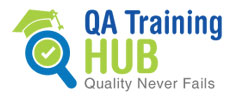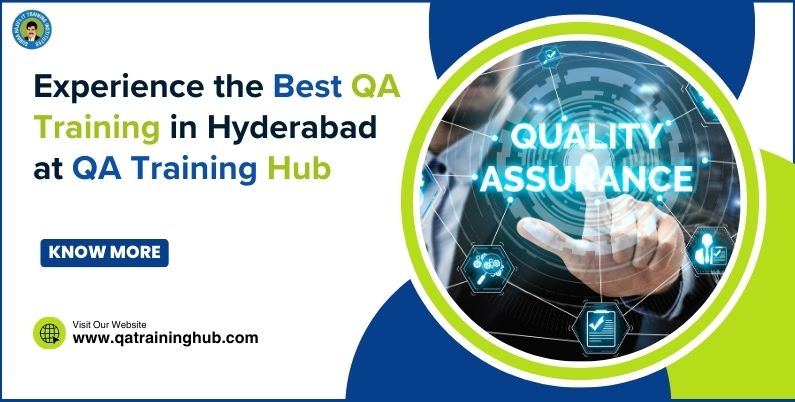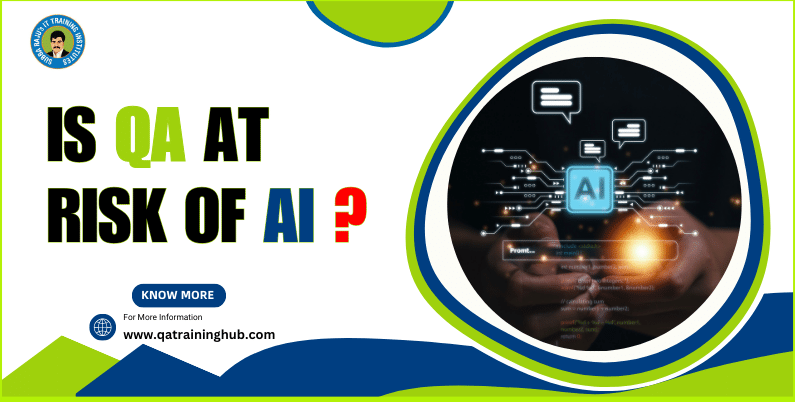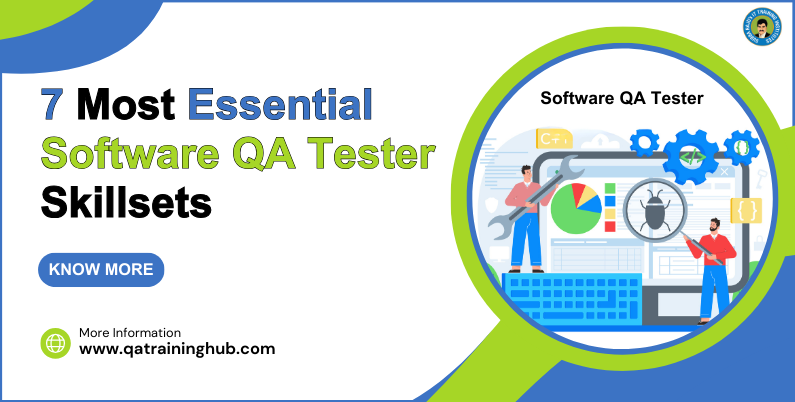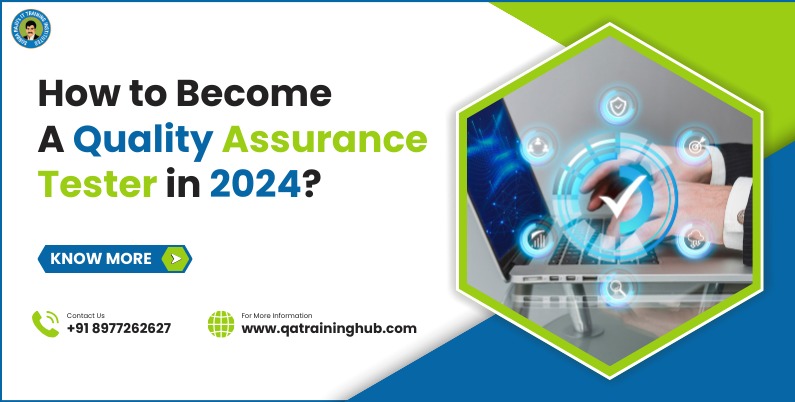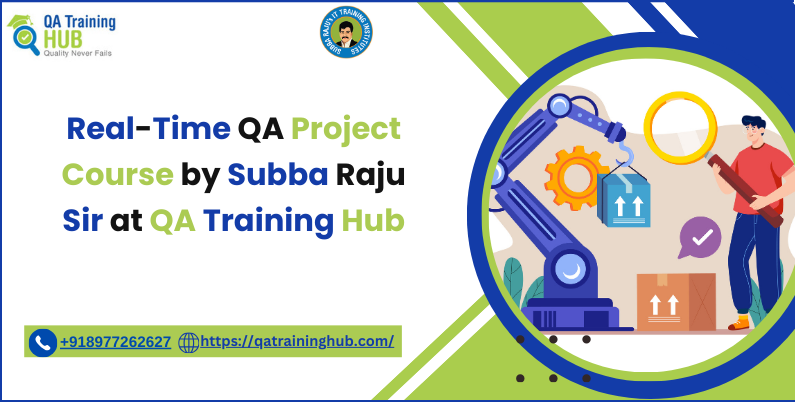
Quality Assurance (QA) professionals looking to elevate their skills need more than just theoretical knowledge; they need hands-on experience in real-world scenarios. This is where the Real-Time QA Project Course by Subba Raju Sir at QA Training Hub stands out. Designed to bridge the gap between traditional learning and practical expertise, this course offers participants the unique opportunity to work on real-time QA projects, giving them the skills and confidence they need to excel in today’s competitive tech landscape.
The importance of practical experience cannot be overstated. While theoretical knowledge provides a foundation, it is the application of this knowledge in real-world situations that truly prepares QA professionals for the demands of their roles. By working on live projects, students will develop critical skills in problem-solving, teamwork, and effective communication—qualities that are essential in today’s collaborative work environments.
Moreover, this course addresses the evolving nature of QA testing as new technologies and methodologies emerge. Participants will not only learn traditional testing practices but also gain insights into automated testing frameworks, performance testing, and agile methodologies. This holistic approach ensures that graduates are not only job-ready but also equipped to adapt to future industry trends.
By choosing the Real-Time QA Project Course, aspiring QA professionals are investing in a program that prioritizes practical experience, mentorship, and comprehensive skill development. This course is a gateway to a rewarding career in quality assurance, preparing students to meet the ever-increasing expectations of employers and clients alike.
Why Real-Time QA Projects Are Essential for Learning
Working on real-time projects is invaluable in QA training because it simulates the challenges faced in an actual workplace environment. Unlike theoretical training, real-time projects immerse learners in the complexities of live testing scenarios, helping them develop critical thinking, troubleshooting skills, and a deeper understanding of the QA process. Here are some key benefits of real-time QA project experience:
- Practical Knowledge: Students encounter and solve real issues faced in QA processes, building practical knowledge.
- Enhanced Problem-Solving Skills: Real-world challenges teach participants to devise solutions quickly and effectively.
- Confidence and Preparedness: Tackling live projects prepares QA professionals to handle any issues they may encounter in their jobs.
- Team Collaboration Skills: Working on projects in a team setting helps learners develop collaborative skills crucial for QA roles.
What to Expect from the Real-Time QA Project Course by Subba Raju Sir
Subba Raju Sir, a seasoned expert in quality assurance, brings years of industry experience and a deep understanding of modern QA practices. His Real-Time QA Project Course at QA Training Hub is tailored to guide participants through each stage of a QA project, from planning to execution.
1. Comprehensive Curriculum Covering Essential QA Concepts
The course covers essential QA topics, including test planning, test case design, defect tracking, automation frameworks, and testing best practices. Each topic is strategically introduced to prepare students for the complexities of real-time project work. Key modules include:
- Test Planning and Strategy Development: Understand the importance of planning and strategy, including risk analysis, scope, and timeline management.
- Test Case Design: Learn how to design test cases that cover all possible scenarios, ensuring thorough testing coverage.
- Defect Tracking and Reporting: Master defect tracking and reporting methods, a crucial aspect of identifying and fixing issues effectively.
- Automation Frameworks: Gain insights into automation tools and frameworks commonly used in the industry.
2. Hands-On Practice with Real-Time QA Projects
Throughout the course, participants engage in real-time QA projects, simulating live environments. These projects allow students to apply concepts learned in the course, providing hands-on experience with tools like Selenium, JIRA, and TestNG. Working with these tools offers a robust understanding of industry-standard platforms and best practices, enhancing the learning process.
3. Expert Guidance and Mentorship from Subba Raju Sir
One of the most significant advantages of this course is the mentorship from Subba Raju Sir himself. With his wealth of knowledge and experience, he provides personalized guidance, feedback, and insights that help students navigate the complexities of real-time QA projects. His mentorship ensures that learners not only grasp the theoretical aspects but also excel in applying them practically.
4. Team Collaboration and Soft Skills Development
QA projects are rarely done in isolation; they require effective collaboration with team members. This course includes group projects that enhance teamwork, communication, and problem-solving skills. Participants learn how to coordinate with other testers, developers, and project managers, preparing them for the collaborative nature of real-world QA work.
5. Industry-Relevant Tools and Techniques
The Real-Time QA Project Course offers practical experience with industry-standard tools, making participants proficient in using:
- JIRA for defect tracking and project management
- Selenium for test automation
- TestNG for test management
- Git for version control and collaboration
Mastering these tools not only boosts participants’ technical skills but also gives them an edge in the job market.
Real-time fields where QA testing is commonly performed:
Quality Assurance (QA) testing is essential across various industries to ensure the quality, reliability, and performance of products and services. Here are some real-time fields where QA testing is commonly performed:
- Software Development:
- Web Applications: Testing websites and web applications for functionality, usability, and security.
- Mobile Applications: Ensuring mobile apps perform well across different devices, operating systems, and screen sizes.
- Desktop Applications: Verifying the functionality and performance of software installed on personal computers.
- E-commerce:
- Payment Gateway Integration: Testing payment systems for accuracy and security during transactions.
- User Experience: Ensuring the website’s navigation, checkout process, and overall user experience are smooth and intuitive.
- Healthcare:
- Medical Software: Testing electronic health record systems, patient management software, and telemedicine applications for compliance and accuracy.
- Medical Devices: Ensuring the safety and effectiveness of software used in medical devices.
- Finance and Banking:
- Banking Applications: Testing online banking platforms for security, transaction processing, and user experience.
- Financial Software: Ensuring the accuracy of calculations in accounting and financial management software.
- Telecommunications:
- Network Performance Testing: Evaluating the performance of network systems and services, including call quality, data transmission, and bandwidth management.
- Mobile Services: Testing mobile network applications for functionality and performance.
- Gaming:
- Game Testing: Ensuring video games are free from bugs and provide a smooth user experience across different platforms.
- In-Game Purchases: Testing micro transactions for accuracy and security.
- Automotive:
- Embedded Systems: Testing software in vehicles, including navigation, entertainment systems, and driver assistance technologies.
- Safety Systems: Ensuring the reliability of safety features such as airbags and anti-lock braking systems.
- Retail:
- Point of Sale (POS) Systems: Testing the functionality and security of POS systems in stores.
- Inventory Management: Verifying the accuracy of inventory tracking systems.
- Manufacturing:
- Automation Software: Testing software used in automated manufacturing processes to ensure they function as intended.
- Quality Control Systems: Ensuring systems that monitor product quality during production are effective.
- Education:
- Learning Management Systems (LMS): Testing online learning platforms for usability, functionality, and content delivery.
- E-Learning Applications: Ensuring educational software and applications provide a seamless learning experience.
- Cloud Computing:
- SaaS Applications: Testing software-as-a-service applications for scalability, performance, and security.
- Cloud Infrastructure: Ensuring the reliability and performance of cloud services and platforms.
- Government and Public Sector:
- Public Service Applications: Testing software used for public services, such as tax systems and social services applications, for accuracy and security.
- Data Security: Ensuring the protection of sensitive data handled by government systems.
QA testing in these fields ensures that products and services meet user expectations and comply with industry standards and regulations, ultimately contributing to enhanced customer satisfaction and safety.
Key Takeaways from the Real-Time QA Project Course
Enrolling in the Real-Time QA Project Course at QA Training Hub equips participants with skills that translate directly into their careers. Here are some of the primary outcomes:
- Job-Ready Skills: Completing real-time projects builds confidence and prepares learners to handle similar challenges in professional roles.
- Hands-On Knowledge of Real-Time QA Projects: Practical experience with real-time projects strengthens participants’ understanding and ensures they are prepared for QA roles in any industry.
- Resume Enhancement: Having experience with real-time projects and industry-standard tools can be a strong addition to participants’ resumes, giving them an edge over other candidates.
- Networking and Mentorship Opportunities: The guidance of Subba Raju Sir and collaboration with fellow students foster a network of contacts valuable for career growth.
Why Choose QA Training Hub?
QA Training Hub is known for its commitment to providing top-tier training that meets industry standards. With courses led by industry experts like Subba Raju Sir, QA Training Hub offers a unique blend of theoretical knowledge and practical experience. The Real-Time QA Project Course is a shining example of how QA Training Hub equips students with the tools, knowledge, and skills they need to succeed in the QA field.
Conclusion
The Real-Time QA Project Course by Subba Raju Sir at QA Training Hub is the ideal choice for those who wish to advance their QA careers through hands-on learning. This course provides participants with practical experience in real-time QA projects, essential for becoming effective and adaptable QA professionals. From mastering industry tools to gaining practical project experience, this course offers everything needed to excel in quality assurance.
If you’re ready to take your QA skills to the next level, join the Real-Time QA Project Course at QA Training Hub and learn from the best in the industry!
FAQs
- What is the Real-Time QA Project Course?
The Real-Time QA Project Course is a hands-on training program designed to equip participants with practical skills in quality assurance through real-world projects, guided by Subba Raju Sir. - Who is Subba Raju Sir?
Subba Raju Sir is an experienced QA professional and instructor with extensive knowledge of QA practices, tools, and methodologies. He brings years of industry experience to the course. - What will I learn in this course?
Participants will learn key QA concepts, including test planning, test case design, defect tracking, automation testing, and more, while working on live projects. - How does this course differ from traditional QA training?
Unlike traditional training that focuses on theoretical knowledge, this course emphasizes practical experience through real-time projects, providing a more immersive learning experience. - Are there any prerequisites for enrolling in the course?
While there are no strict prerequisites, a basic understanding of software development and testing concepts can be beneficial for participants. - How long is the course?
The duration of the course may vary, but it typically includes several weeks of training, with ample time allocated for project work and mentorship. - Will I receive a certification upon completion?
Yes, participants who successfully complete the course will receive a certificate, which can enhance their resume and showcase their skills to potential employers. - How can I enroll in the course?
Enrollment details can be found on the QA Training Hub website, where you can register and find information on course schedules and fees. - What support will I receive during the course?
Participants will receive mentorship from Subba Raju Sir, access to course materials, and ongoing support throughout the training period. - Is this course suitable for beginners?
Yes, the course is designed to accommodate both beginners and those with some prior experience in QA, allowing everyone to build their skills effectively.
